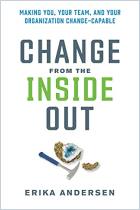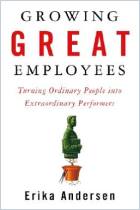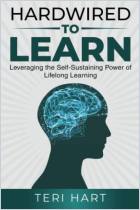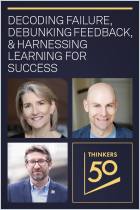Acesse a sua conta getAbstract para obter o resumo!

Acesse a sua conta getAbstract para obter o resumo!
Erika Andersen
Be Bad First
Get Good at Things Fast to Stay Ready for the Future
Routledge, 2016
Sobre o que é?
“Being bad first” is the initial step on the path of learning, upskilling, development and growth.
Recommendation
Michelangelo continued learning and taking on new challenges until he died at the age of 88. He’s a prime example of a high-powered learner, and he is the embodiment of the four skills in the ANEW model of mastery – “aspiration, neutral self-awareness, endless curiosity and willingness to be bad first” – developed by executive coach Erika Andersen. The model codifies the powerful human drive to master something, even when it means “being bad first.” Apply these skills to thrive in an environment of rapid change, to remain attractive to employers and to flourish in the workplaces of tomorrow.
Summary
About the Author
Erika Andersen is a coach, author, blogger and the founder of Proteus, a coaching consultancy that advises executives. Her previous books include Leading So People Will Follow and Being Strategic.























Comment on this summary